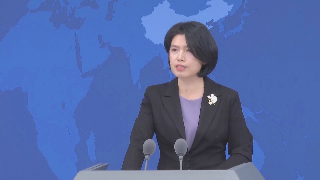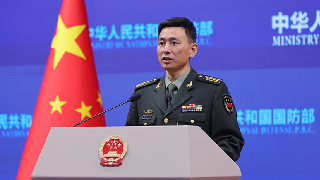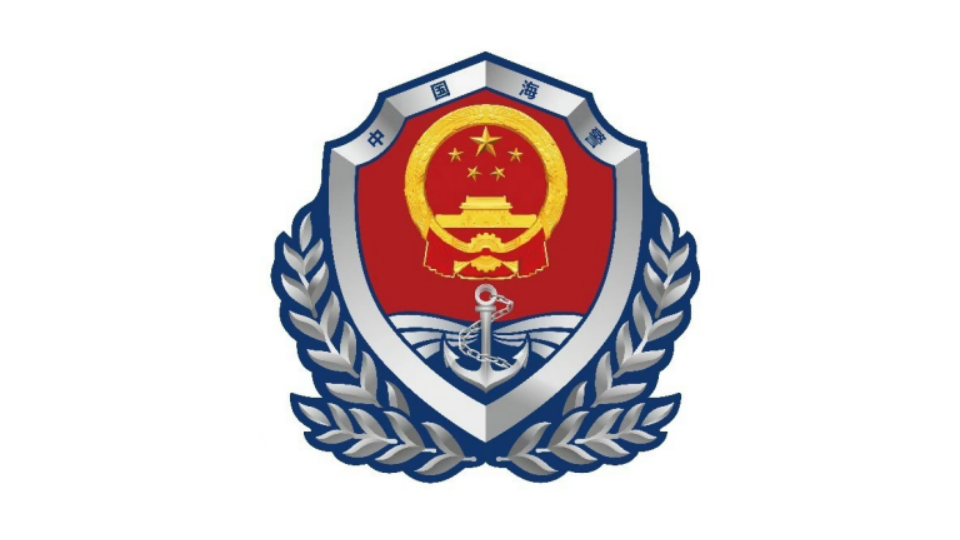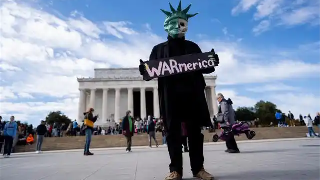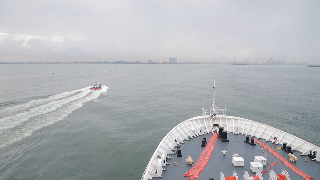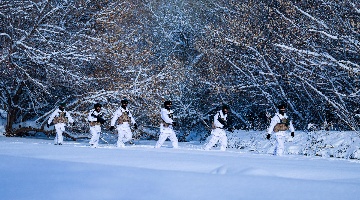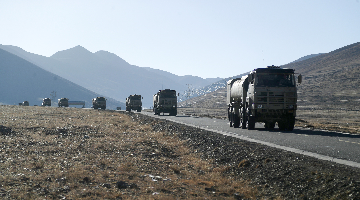
The NATO flag. [Photo/Agencies]
Until quite recently, a negotiated end to the Russia-Ukraine conflict seemed to be a non-option for either Ukraine or the NATO countries which promised to have its back. Negotiating with Russia, as opposed to defeating it, was apparently off-limits for both Kyiv and its NATO supporters. Anything short of Ukraine reclaiming territory lost to Russia since 2022, even 2014, appeared to be unacceptable.
There has been a subtle change in the rhetoric of Ukraine's Western allies, however, that may have significant implications for the way the conflict, which has lasted nearly three years, unfolds, or even potentially ends.
While the latest discussions about NATO's support for Ukraine remain focused on sustaining, if not significantly boosting, the flow of aid to it, that might not be simply business as usual.
In a news conference on Tuesday, NATO Secretary-General Mark Rutte urged allies to increase military aid to strengthen Kyiv's position should it enter negotiations with Moscow.
Likewise, while warning that a Russian victory would threaten Europe's security, stability and prosperity, United Kingdom Prime Minister Keir Starmer for the first time mentioned the prospect of the war ending in a negotiated settlement.
Even the letter Ukraine's Foreign Ministry sent to the NATO foreign ministers' meeting in session now in Brussels effectively opened the door to a negotiated solution, although the precondition of NATO membership is likely to be a stumbling block.
How things actually play out, however, probably hinges on how the incoming US administration approaches the situation.
While mystery surrounds the US president-elect's claim that he will be able to end the conflict in "24 hours" after his inauguration, with much speculation about what, if anything, he has up his sleeve, the fact that maneuvering a negotiated end to the conflict has become a common topic itself brings hope that there is a general consensus building that the hostilities have dragged on for long enough.
Despite some obvious foot-dragging at times, the NATO allies have generally followed the Joe Biden administration's lead on Ukraine. A lead that has been characterized by its consistent pugnacious animosity.
While the Biden administration is fast-tracking military aid to Ukraine in its last days in office, it is probably not with the intention of giving Kyiv leverage in negotiations with Moscow, but rather with the aim of convincing it that it can prevail by force of arms.
Having finally given the green light to Ukraine to use US-supplied long-range missiles against targets inside Russia, the Biden administration on Monday announced a new package of weapons for Ukraine worth $725 million.
The challenge now for the international community is how to seize the window of opportunity that has opened to get the two belligerents to sit down for actual negotiations and make the necessary compromises to secure a deal.
Since Kyiv's demand for NATO membership would seem to preclude the possibility of any face-to-face talks with Moscow, a way must be found to provide the two conflicting parties with credible security guarantees as a prelude to meaningful talks aimed at a political solution.
Throughout the conflict, China has held an objective and impartial position and promoted peace talks. To this end, it has consistently urged the parties to the conflict to de-escalate the situation and create conditions conducive to direct dialogue.
With talk of negotiations on NATO's lips, China hopes that the belligerents will step away from their entrenched positions on the preconditions for peace talks, so they can explore the pathways to a lasting political settlement of their differences.
China will continue to carry out exchanges with all stakeholders and concerned parties in the belief that seeds of hope can be planted for peace.
Although the protracted conflict between Russia and Ukraine has deep-rooted causes, China believes that, if handled with care, the toxicity of these rotten roots can be treated so there is fertile soil for a peaceful resolution to the crisis.





